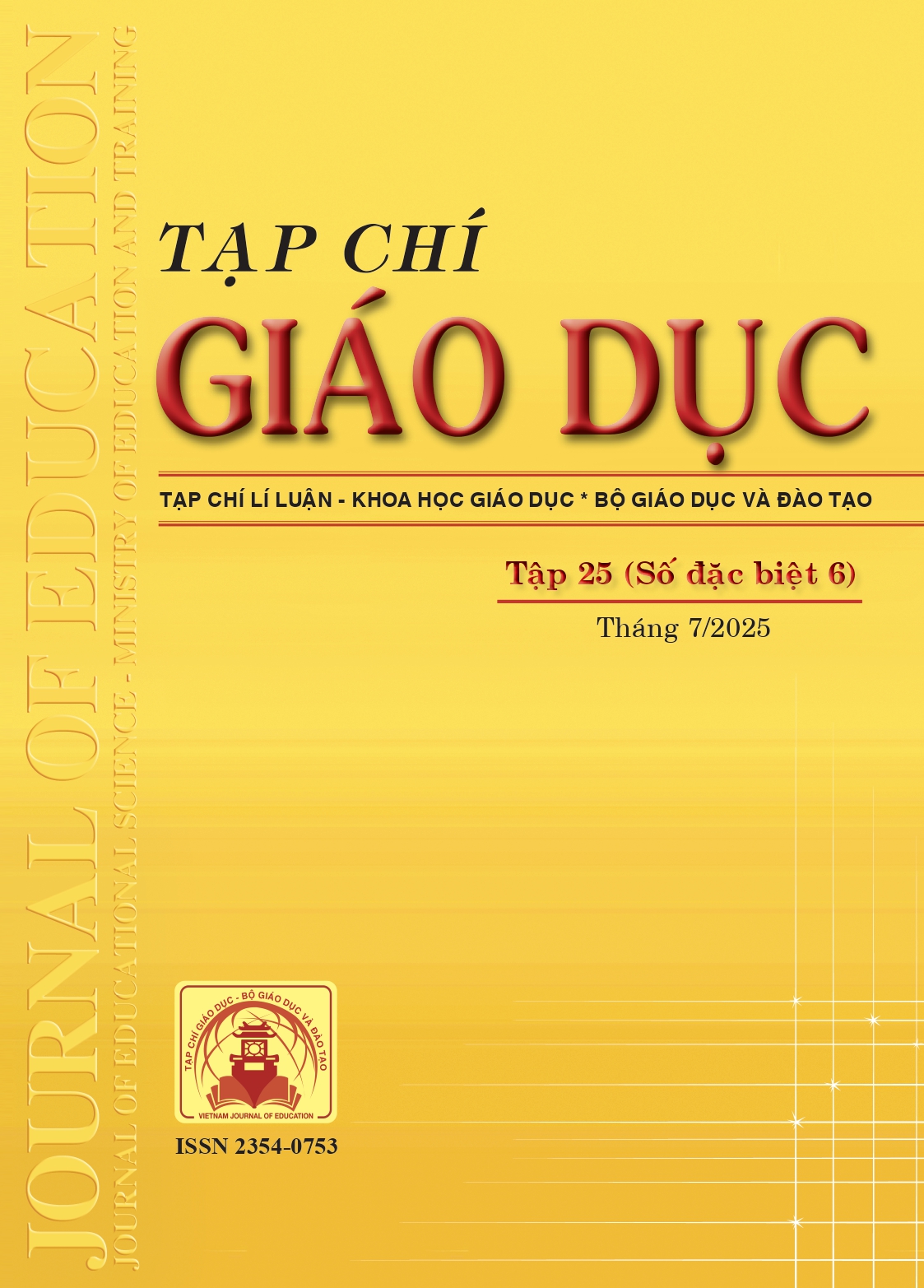Vận dụng mô hình “dạy học khám phá” (IBL) trong dạy học Lịch sử Việt Nam lớp 10 ở trường trung học phổ thông
Tóm tắt
The Inquiry-Based Learning (IBL) teaching and training model is one of the modern teaching models. When applied to teaching History in high schools, this model plays a huge role in attracting interest, building lessons effectively and developing students' critical thinking. However, in the process of teaching and learning in this typical high school, there are still many new challenges for both educators and students to be able to apply it effectively. This article analyzes the characteristics and roles of the IBL model, conducts surveys and pedagogical experiments to evaluate the results of applying the inquiry teaching model in teaching Vietnamese history of grade 10 in high school. The research results will be a theoretical basis for applying the IBL model (IBL) in teaching History in high schools, contributing to the development of cognitive competency and historical thinking for students in high school and a reference source for teachers teaching History in high schools.
Tài liệu tham khảo
Bippus, E., Gaspar, M. (2019). Inquiry-Based Learning in the Arts. In: Mieg, H.A. (eds) Inquiry-Based Learning - Undergraduate Research. Springer, Cham. https://doi.org/10.1007/978-3-030-14223-0_21
Bybee, R. W., Taylor, J. A., Gardner, A., Van Scotter, P., Powell, J. C., Westbrook, A., & Landes, N. (2006). The BSCS 5E instructional model: Origins and effectiveness. Colorado Springs, Co: BSCS, 5(88-98).
Caswell, C. J., & LaBrie, D. J. (2017). Inquiry-based Learning from the Learner’s Point of View: A Teacher Candidate’s Success Story. Journal of Humanistic Mathematics, 7(2), 161-186.
Guido, M. (2017). Inquiry-Based Learning Definition. Benefits & Strategies. htttps://www.prodigygame.com/blog/inquiry-basedl-learning-defintiion-benefits-strategies/
Harlen, W. (2013). Inquiry-based learning in science and mathematics. Review of science, mathematics and ICT education, 7(2), 9-33.
Hwang, G. J., & Chang, H. F. (2011). A formative assessment-based mobile learning approach to improving the learning attitudes and achievements of students. Computers & Education, 56, 1023-1031.
Levy, B. L. M., Thomas, E. E., Drago, K., & Rex, L. A. (2013). Examining studies of inquiry-based learning in three fields of education: Sparking generative conversation. Journal of Teacher Education, 64(5), 387-408. https://doi.org/10.1177/0022487113496430
Marks, D. B. (2013). Inquiry Based Learning: What's Your Question?. National Teacher Education Journal, 6(2), 21.
Marshall, J. C., & Smart, J. B. (2013). Teachers’ transformation to inquiry-based instructional practice. Creative Education, 4(02), 132-142. https://doi.org/10.4236/ce.2013.42019
Maxwell, D. O., Lambeth, D. T., & Cox, J. T. (2015). Effects of using inquiry-based learning on science achievement for fifth-grade students. In Asia-Pacific Forum on Science Learning & Teaching, 16(1), 5-35.
Mazzulla, J. (2011). Inquiry Based Learning. A Curriculum Innovation Examined. https://sttapd.wordpress.com/wp-content/uploads/2014/01/curriculum_innovation_essay.pdf
Pedaste, M., Mäeots, M., Siiman, L. A., De Jong, T., Van Riesen, S. A., Kamp, E. T., ... & Tsourlidaki, E. (2015). Phases of inquiry-based learning: Definitions and the inquiry cycle. Educational Research Review, 14, 47-61. https://doi.org/10.1016/j.edurev.2015.02.003
Sockalingam, N., Rotgan, J., & Schmidt, H. G. (2011). H. G. Student and Tutor Perceptions on Attributes of Effective Problems in Problem-Based Learning. Higher Education, 62(1), 1-16.
Spronken-Smith, R., & Walker, R. (2010). Can inquiry-based learning strengthen the links between teaching and disciplinary research?. Studies in Higher Education, 35(6), 723-740.
Đã Xuất bản
Cách trích dẫn
Số
Chuyên mục
Giấy phép

Tác phẩm này được cấp phép theo Ghi nhận tác giả của Creative Commons Giấy phép quốc tế 4.0 .












